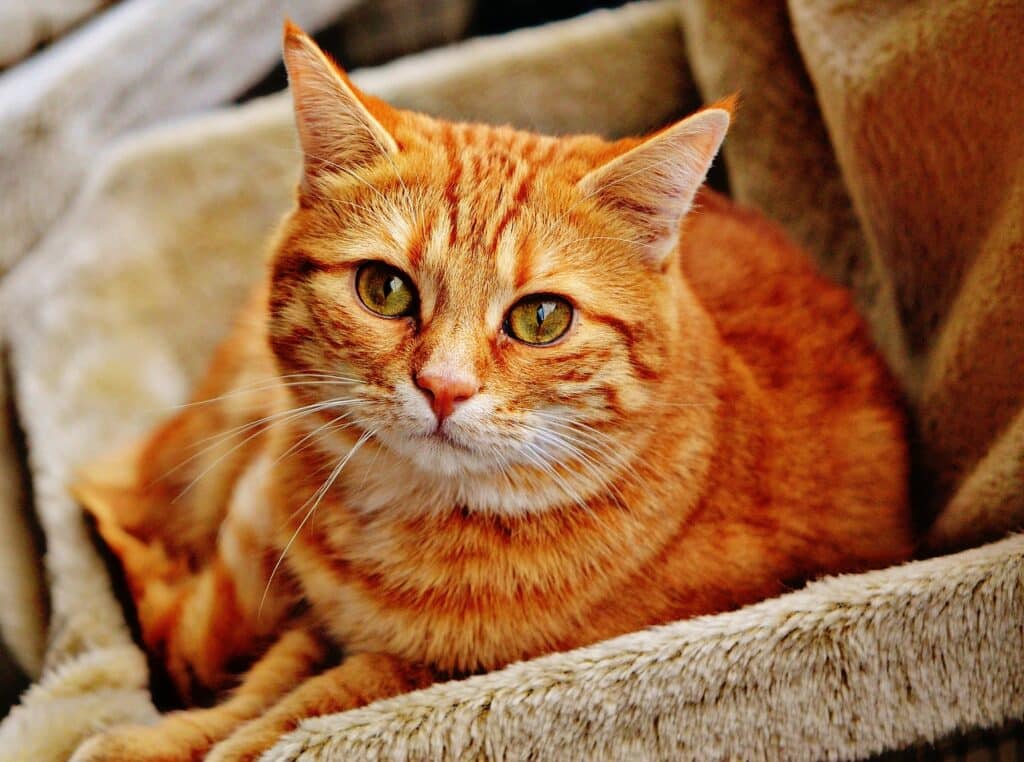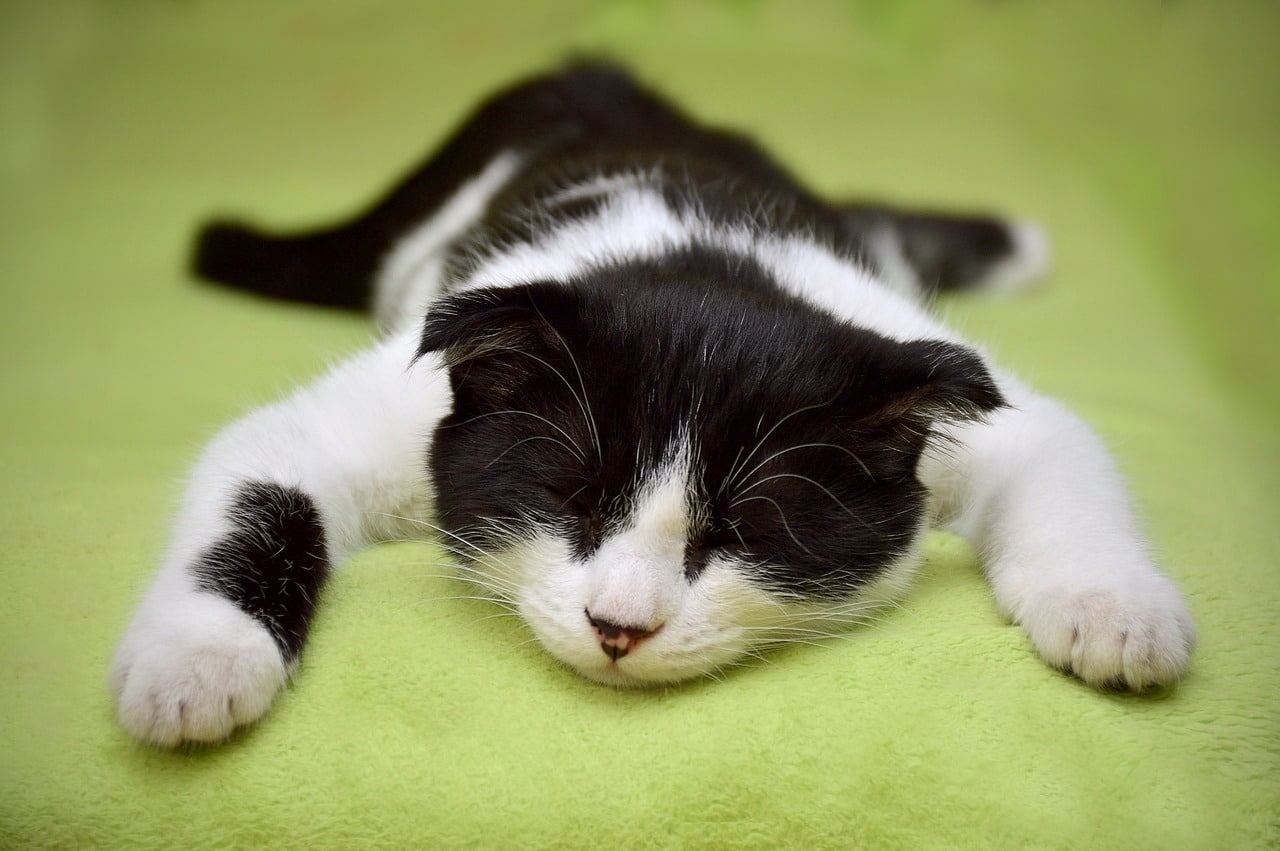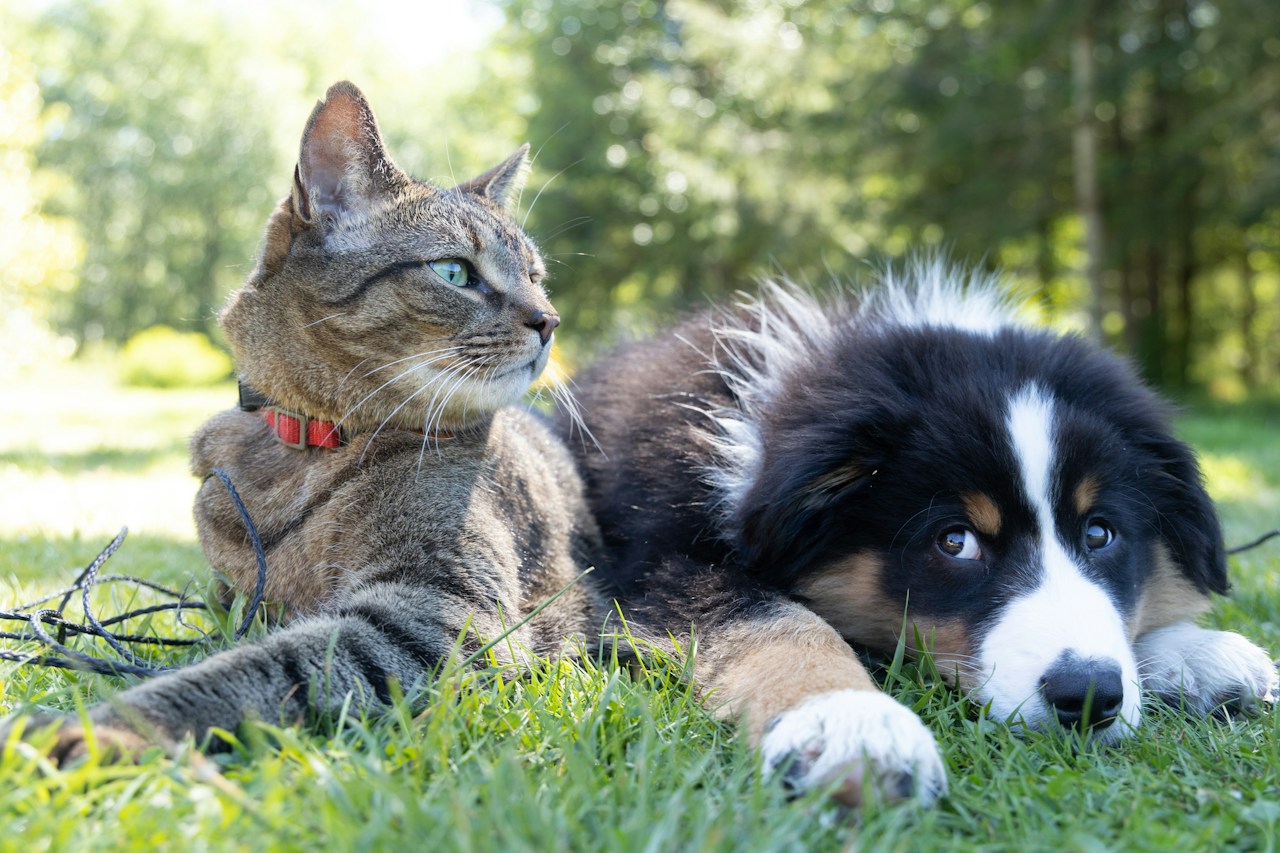If you see your cat sneezing a lot and their eyes are watery, it might mean they have something called an upper respiratory tract infection (URI), which is like a cold in humans. But . can cats get colds?
According to smart people who study animals (veterinarians and schools that teach about animals), many things can make cats get colds, and some of them can easily spread to other cats.
Table of Contents

How do cats get colds?
Cats usually get colds from viruses, but sometimes it can be because of bacteria. Two common viruses that can cause colds in cats are calicivirus and feline herpesvirus or rhinotracheitis.
These germs usually move through the air, but they can also spread through water. Most cats catch colds from being close to a cat that is already sick. This happens more in places where many cats live together, like shelters or kennels.
Even if a cat stays indoors, it doesn’t mean they’re safe from colds. They can still be around viruses and bacteria. Places with not-so-good air and not enough fresh air can make it easier for cats to get sick. Also, cats with other problems, like asthma or allergies, or feeling stressed, can get sick more easily.
Symptoms of a cat cold
When a cat has a cold or an upper respiratory infection, they might show these signs: sneezing, a stuffy or runny nose, watery eyes, not wanting to eat, feeling tired, getting sores, especially on the tongue, having a fever, coughing, being very thirsty, and the lymph nodes (which are like little bumps in their neck) might get bigger. These cold symptoms in cats usually stick around for one to two weeks.

How to treat a cat with a cold
If your cat seems to have a cold, you can take care of them at home:
- Make sure they have a warm and quiet place to rest.
- If there are scabs around their nose or eyes, gently clean their face with a damp cloth. You can use artificial tears for their eyes.
- A humidifier in the room can help make their breathing feel better.
- Warm their food a bit to make it smell stronger. Colds can make cats not want to eat because it affects their sense of smell.
- Don’t give them any cold medicine without asking your vet. Cats process medicine differently, and things that are okay for people might be harmful to them.
Most times, a cat’s cold goes away on its own with some time and care. If your cat needs medicine, it’s best to get it from the vet because they know what’s safe for animals.
How to prevent your cat from catching a cold
Pets need to get their shots. The CPR vaccine, also called FVRCP or feline distemper, helps protect against calicivirus and rhinotracheitis (feline herpes).
Here are some other things you can do to keep your cat safe:
- Keep them away from sick or unknown animals. Try to keep your cat inside, and if they go out, make sure it’s a safe area.
- Keep their home clean and well-ventilated. Make sure their living space is tidy and has enough fresh air.
- Give them good food. A healthy diet helps their immune system stay strong.
When to go to the vet
If your cat is showing these signs, it’s important to take them to the vet:
- Trouble breathing
- Coughing
- A lot of discharge from the nose or eyes, especially if it has pus
- Not eating for more than a day
- Sores in the mouth
- Being very tired
The vet can give medicine to make the cat feel better and treat any other problems caused by bacteria.
If it’s a more serious case, the vet might use IVs to give the cat more fluids, provide extra oxygen, or even use a feeding tube to make sure they get enough nutrition.

Can you pass a cold to cats?
No, cats can’t catch the same cold that you have. For instance, if your sickness is caused by streptococcus bacteria, your cat is safe from getting infected.
Here’s a tip: Once your doctor tells you what’s making you sick, it’s a good idea for cat owners to ask if it could affect their pet. This way, you can be sure you’re taking the right precautions.
Conclusion: Can cats get colds
In conclusion, most cat colds get better on their own. However, it’s a good idea to ask a vet for help if the symptoms get worse.


